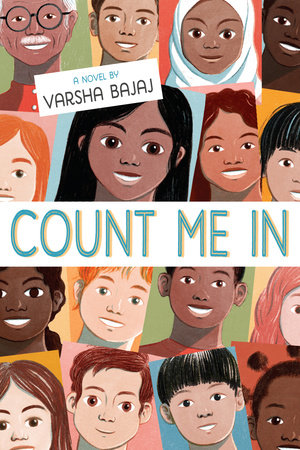Why It’s Important to Talk To Your Child About Racism and Hate
by Varsha Bajaj
The world may have changed, but most parents’ desire to love and protect their children remains unchanged. As toddlers, we shield them from stumbles, fictional monsters, and swallowing small objects. As we try to balance being present with allowing tweens and teens the space and freedom to grow, safeguarding them becomes much more complicated.
Since social media and the smart phone became ubiquitous, we no longer have the option of not discussing racism and hate with our children. Even if your child doesn’t own a smart phone or watch the news at home, they can be exposed to hate or racism through their friends, the internet, or classmates. In the absence of knowledge, kids become vulnerable and susceptible to misinformation.
The seeds of racism and hate are sown when “others” are regarded as suspicious, inferior, or threatening, rather than trustworthy and deserving of respect. Before parents talk to their child about racism or hate, they need to explore their own feelings and prejudices. It is a difficult and sensitive subject — go in prepared. We’re afraid of saying the wrong things and sending the wrong message, but there are many resources to educate and guide. During the conversation, pause and listen to your child. Create a safe place and encourage him/her to share experiences so you understand their influences and what they’ve already been exposed to. The child who may have been the target of racial slurs needs to know and hear that he/she did not cause the attack and needs empowerment and loving affirmation of his/her worth.
Using movies or books to initiate the discussion can make difficult conversations less threatening and more natural because media provides the distance from a real-life situation, while invoking empathy for the characters. I remember my kids clutching my arm when Mufasa died in The Lion King. It was our opportunity to talk about bad things happening to the people we love the most. Reassurance of safety and optimism is important. Small gestures of normalcy help, and that evening we got ice cream and played Pictionary. Additionally, reading a powerful story like Jacqueline Woodson’s If You Come Softly would help to facilitate the discussion about racism and hate.
In Count Me In, the grandfather of Indian-American Karina is the victim of hate. In her moment of despair, she reaches out to her support circle on social media and learns about the power of empathy when dealing with senseless hate. She and her friend Chris grapple with belonging, speaking up, and becoming accidental activists.
While the barrage of negativity can at times be overwhelming, it is important to convey a sense of hope and agency. Count Me In is an uplifting story of friendship and the power of community support. Adults can also model accepting and helping behavior through their own actions — by supporting organizations and causes that help fight racism and hate.
The ultimate goal is to uplift, support, and affirm each child in an increasingly complicated world, and to send the message that there is no room for hate.
Resources to help:

